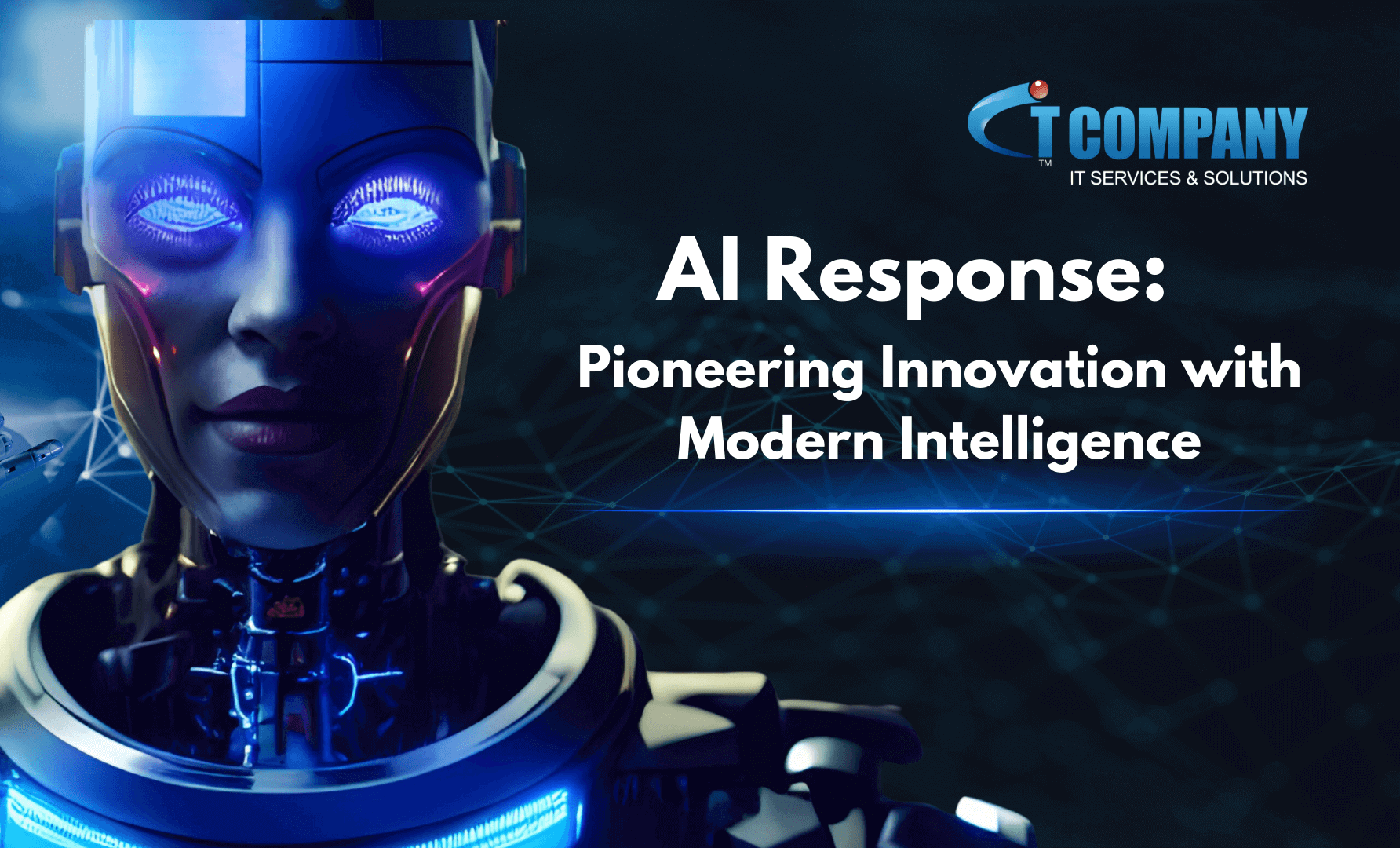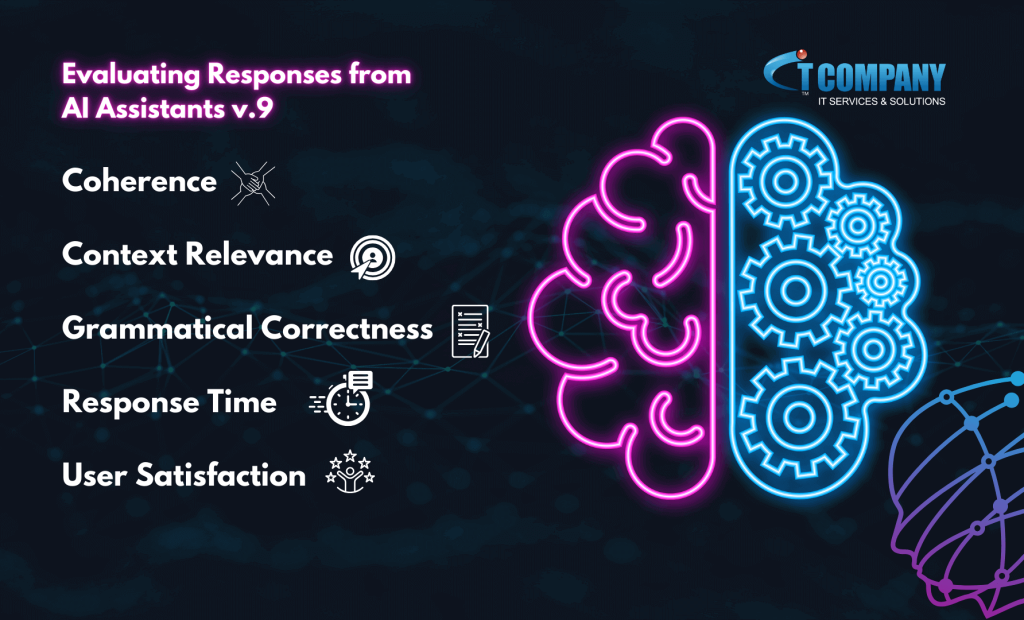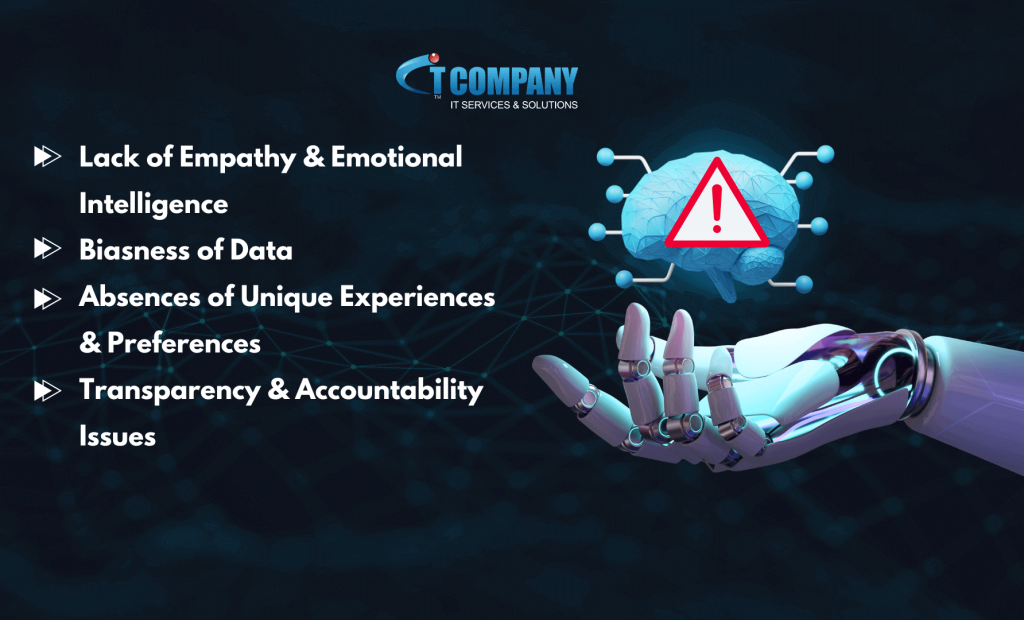
Table of Contents
ToggleIntroduction
Artificial Intelligence (AI) has become an indispensable tool in the IT field, revolutionizing various aspects of the industry. One of the most impactful applications is the use of AI response generators.
These tools, such as AI response generators and AI email response generators, offer a streamlined way to handle communications and improve efficiency in IT Company’s operations.
The Role of AI Response Generators
AI response generators utilize advanced algorithms to produce text-based responses. They are particularly useful in customer service, technical support, and automated newsletters & email replies. The AI-generated responses are crafted to mimic human-like interactions, ensuring that users receive accurate and timely information.
Types of AI Response Generators
- AI Discussion Response Generators:
These tools enhance online discussion boards by providing intelligent and contextually relevant responses.
- AI Email Response Generators:
Automated email replies, saving time and ensuring consistent communication.
- AI Review Response Generators:
Aid in responding to customer reviews and maintaining a positive brand image.
- AI Text Response Generators:
Generate quick and effective text responses for various platforms.
Evaluating AI Responses
Evaluation of AI-generated responses is crucial to ensure accuracy and relevance. The parameters for the assessment include coherence, context relevance, and grammatical correctness. Tools like Evaluating Responses from AI Assistants v.9 are designed to benchmark the performance of these AI systems.

The Evaluating Responses from AI Assistants v.9 tool is a sophisticated system designed to rigorously test and measure the effectiveness of AI-generated responses. This evaluation framework assesses various parameters to ensure AI responses meet high quality and usability standards. Key metrics include:
- Coherence: This metric checks if the response flows logically and is easily understandable by users. A coherent response should be clear and follow a logical progression of ideas.
- Context Relevance: The tool measures how well the AI response aligns with the context and subject matter of the conversation. Relevance is crucial for providing accurate and helpful information to users.
- Grammatical Correctness: Proper grammar and punctuation are essential for maintaining professional and readable communications. This metric ensures the AI-generated response adheres to standard grammatical rules.
- Response Time: The speed at which the AI can generate a response is also evaluated. Fast response times improve user satisfaction and efficiency in handling queries.
- User Satisfaction: Often measured through feedback and surveys, this metric gauges users’ overall satisfaction with the AI-generated responses, factoring in elements like helpfulness and engagement quality.
By incorporating these comprehensive metrics, Evaluating Responses from AI Assistants v.9 ensures that AI tools continuously improve and deliver high-quality, human-like interactions.
This rigorous evaluation process helps businesses confidently deploy AI technologies, enhancing both customer experience and operational efficiency.
Responsibility Gap in AI
The responsibility gap refers to the ethical and accountability challenges posed by AI. In the context of AI response generators, ensuring that these systems operate within ethical boundaries is essential. It includes addressing biases, maintaining user privacy, and ensuring transparency in AI operations.
Example of AI Response Generators in Action
To illustrate the practical application of AI response generators, let’s consider a customer service scenario for an e-commerce company.
When a customer reaches out with a query about an order delay, an AI Email Response Generator comes into play. The AI scans through the customer’s email to understand the context and urgency of the issue. The AI formulates a personalized response based on pre-trained models and historical data.
| Customer’s Query: “Dear support team, I placed an order for a laptop two weeks ago, and it still hasn’t arrived. Can you provide an update on the delivery status?” AI-Generated Response: |
| “Dear Jane Doe, thank you for reaching out to us. We sincerely apologize for the delay in delivering your laptop. After checking, we found that your order was delayed due to unforeseen shipping issues. Rest assured, your order is now on its way and should arrive within 3-5 business days. We appreciate your patience and understanding. If you have any further questions, please do not hesitate to contact us.” |
| In this response, the AI has demonstrated coherence by logically addressing the customer’s concern and providing a straightforward update. It maintained context relevance by directly referring to the customer’s order and the delay. The grammatical correctness ensured that the communication remained professional and error-free. Finally, the promptness of the response adds to user satisfaction, showcasing the efficiency of AI tools in streamlining customer service operations. |
This real-world example highlights how AI response generators can effectively handle common queries, allowing human agents to focus on more complex tasks and improving overall service efficiency and customer experience.
Importance of Responsible AI Practices
Implementing responsible AI practices is vital for organizations to maintain trust and integrity. Responsible AI involves:
- Ethical AI Development: Ensuring that AI systems are designed and deployed ethically.
- Transparency: Providing clear explanations of how AI systems generate responses.
- Bias Mitigation: Actively working to eliminate biases in AI-generated content.
- User Privacy: Safeguarding user data and ensuring confidentiality.
Impact on IT and Technology Industries
AI response generators have far-reaching impacts across various industries, especially IT and technology. They enhance operational efficiency, improve customer satisfaction, and provide valuable insights through data analysis.
Organizations that leverage these tools can achieve significant competitive advantages.
Key Benefits:
- Enhanced Efficiency: Automating repetitive tasks allows IT professionals to focus on more complex issues.
- Improved Customer Interaction: Providing quick and accurate responses enhances user experience.
- Data-Driven Insights: Analyzing AI-generated responses helps in understanding user behavior and preferences.
Limitations of AI Responses
While AI response generators offer many benefits, it’s essential to recognize and address their significant limitations. One primary concern is the potential for errors and inaccuracies, especially in complex scenarios that require nuanced understanding and critical thinking.
AI may misinterpret context or fail to grasp the subtleties of language, leading to responses that may not fully address a user’s query or concern.
| Type of Incorrect Response | Example |
| Contextual Misinterpretation | Customer Query: “Can I upgrade my plan?” AI Response: “I’m sorry, your plan is not valid.” |
| Grammatical Error | Customer Query: “How can I track my order?” AI Response: “You can tracks your order online.” |
| Lack of Relevant Information | Customer Query: “What are your office hours?” AI Response: “Please visit our website.” |
| Biased Response | Customer Query: “Can you recommend a good doctor?” AI Response: “All doctors are great.” |
| Incomplete Response | Customer Query: “How much does the product cost?” AI Response: “It depends.” |
| Repetitive or Generic Response | Customer Query: “What are your services?” AI Response: “We provide a range of services.” |
| Confusing or Contradictory | Customer Query: “Is my flight on time?” AI Response: “Your flight is delayed.” |
| Emotionally Insensitive | Customer Query: “I’m having a bad day.” AI Response: “That’s unfortunate.” |

Conclusion
Integrating AI response generators in IT underscores the importance of adopting advanced technologies to drive growth and efficiency. Organizations can leverage these tools to their full potential by implementing responsible AI practices, ensuring ethical and practical operations.
To explore more about AI and its applications, consider utilizing free AI response generators available online and experience the benefits firsthand.